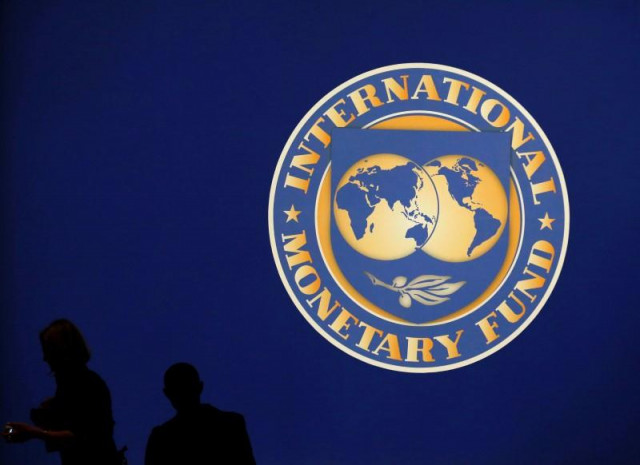IMF keeps macroeconomic projections unchanged
Sees slight rise in unemployment that indicates impact of economic slowdown

PHOTO: REUTERS
The global lender on Tuesday released the “World Economic Outlook, Global Manufacturing Downturn, Rising Trade Barriers” report that suggested that this year the global economic growth would slow to the lowest pace of 3% since the last global financial crisis in 2008-09.
The report showed that the unemployment rate in Pakistan could slightly increase to 6.2% in the current fiscal year, up from 6.1% last year. Historically, the official unemployment data lacks credibility due to the low level of labour participation and high ratio of self-paid workers in the overall employment.
In its last staff-level report, the IMF had said the unemployment rate was less than 6% in Pakistan because the “participation is low (around 30%) and informality remains high at over 70% of all economic activity”.
The Pakistan Tehreek-e-Insaf (PTI) government had promised to create 10 million jobs over five years in key sectors like small and medium enterprises (SMEs), housing, ICT, health, education, green economy and tourism as well as build five million houses.
It is now almost certain that the two promises will remain unfulfilled due to an economic growth rate that is not only almost equal to the population growth rate but is also less than half the pace needed to absorb the youth entering the jobs market.
The IMF report coincided with the remarks made by Federal Minister for Science and Technology Fawad Chaudhry about job prospects in Pakistan that stirred a controversy. He asked the public not to look towards the government for jobs.
However, while talking to The Express Tribune, the minister said what he stated was that “it is the private sector and not the government that provides jobs. The government has to create an environment where jobs are available and it should not be the case that everyone is looking for a government job”.
In its new report, the IMF once again projected that Pakistan’s economy would grow only at a pace of 2.4% in the current fiscal year and at 5% in fiscal year 2023-24.
The low national economic output growth suggests that over the period unemployment and poverty would increase in Pakistan. A World Bank report has also underlined that for the first time since 2001 poverty reduction efforts have stalled in Pakistan.
Overall, the IMF kept its key macroeconomic projections unchanged for the current as well as next five years. One reason could be the upcoming first review talks between the IMF and Pakistan.
An IMF staff-level mission will review the country’s progress on implementation of the $6-billion bailout programme in the July-September quarter and future trends.
The IMF report said Pakistan’s current account deficit would remain at 2.6% of GDP and inflation at 13%.
Commenting on the global economy, the IMF report stated that the global economy was in a synchronised slowdown with growth for 2019 downgraded again to 3% - its slowest pace since the last global financial crisis. This is a serious climb-down from the 3.8% growth rate in 2017, when the world was in a synchronised upswing, it added.
The global growth in 2020 is projected to improve modestly to 3.4%, a downward revision of 0.2% from April projections. However, unlike the synchronised slowdown, this recovery is not broad-based and is precarious.
The growth of advanced economies is projected to slow to 1.7% in 2019 and 2020, while emerging market and developing economies are projected to experience a growth pickup from 3.9% in 2019 to 4.6% in 2020.
About half of this is driven by recoveries or shallower recessions in stressed emerging markets such as Turkey, Argentina and Iran and the rest by recoveries in countries where growth slowed significantly in 2019 relative to 2018 such as Brazil, Mexico, India, Russia and Saudi Arabia.
A notable feature of the sluggish growth in 2019 is the sharp and geographically broad-based slowdown in manufacturing and global trade. A few factors are driving this. Higher tariffs and prolonged uncertainty surrounding trade policy have dented investment and demand for capital goods, which are heavily traded, it added.
Published in The Express Tribune, October 16th, 2019.
Like Business on Facebook, follow @TribuneBiz on Twitter to stay informed and join in the conversation.



















COMMENTS
Comments are moderated and generally will be posted if they are on-topic and not abusive.
For more information, please see our Comments FAQ